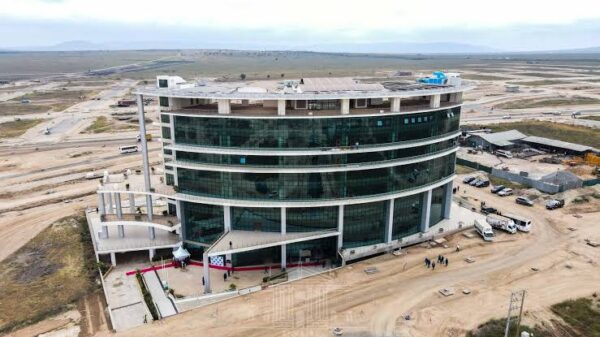NAIROBI, Kenya, Jun 6 – The Central Bank of Kenya (CBK) says it expects inflation to decline to 7.5 percent in the next 12 months as supply constraints ease.
CBK Governor Prof Njuguna Ndung\’u said on Monday that the Bank\’s Monetary Policy Committee (MPC) had noted that although the inflation rate had accelerated between February and April this year, the market was responding to intervention measures taken to raise the benchmark interest rate.
"Inflation is not coming from demand pressure but rather supply constraints; so there is no overheating problem in the economy. What we are seeing is a cost push that is being misinterpreted for overheating," Prof Ndung\’u said.
Inflation figures in May rose to 12.95 percent from 12.05 in April. This was a minimal leap compared to the jump from 9.19 percent in March to 12.05 percent in April.
The CBK Governor however underscored that the CBK\’s projections of a 7.5 percent inflation for mid next year would be dependent on how fast supply constraints especially food and high fuel prices correct themselves.
The CBK raised its benchmark lending rate to 6.25 percent in late May. It also raised its Cash Reserve Ratio (CRR) to 4.75 percent from 4.50 percent, in a bid to tame double-digit inflation.
Despite monetary tightening by the central bank, credit expansion to the private sector grew by Sh66 billion in the first three months of this year. Prof Ndung\’u said the focus going forward would be to ensure credit availability to the private sector especially to those that spur economic growth.
"We need to re-enforce credit to those sectors that are growing but at the same time ensure that they are not going to ratify the supply shocks that we are seeing. That is the tight rope that we have to go through," Prof Ndung\’u said.
The MPC observed that stability in the banking sector had resulted in a strong performance of the sector.
In particular, gross loans increased by from Sh969.9 billion in February to Sh1 trillion in April while the proportion of net non-performing loans to total loans declined from 1.44 percent to 1.36 percent in the period.
Similarly, the number of loan accounts increased from 1.8 million in February to two million in April while that of deposit accounts increased from 13.1 million in January to 13.4 million in March.
Prof Ndung\’u said the committee examined the liquidity ratio of banks, which currently has a statutory minimum of 20 percent. He however expressed his discontent since banks have an average liquidity in excess of 40 percent, adding that the tool had deemed to be ineffective.
"We have given banks too much leeway. The committee therefore concluded that stability and improved performance in the banking system should continue to enable the private sector to access affordable credit in order to support growth," he said.
Follow the author at https://twitter.com/MjKaranja


































